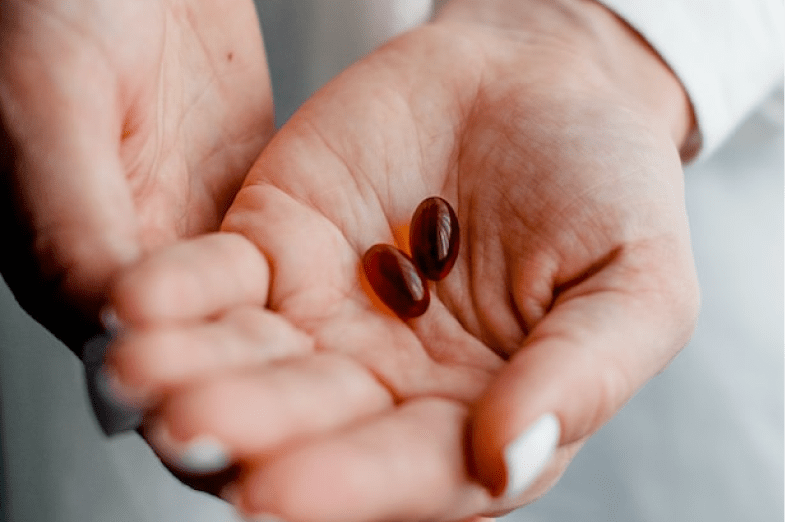-
By: BZOTECH
-
February 3, 2023
The Role of Antioxidants in Skin Health: Vitamin C, E, and Zinc Explained
Glowing, healthy skin isn’t just about what you put on it — it starts with what you put in your body. Antioxidants like vitamin C, vitamin E, and zinc play a powerful role in maintaining vibrant skin by protecting against environmental damage, supporting collagen production, and promoting skin repair. In this article, we break down how each of these essential nutrients contributes to long-term skin health.
What Are Antioxidants and Why Do They Matter for Skin?
Antioxidants are compounds that neutralize free radicals — unstable molecules that damage cells, speed up aging, and contribute to inflammation. Free radicals come from sources like UV rays, pollution, stress, and poor diet.
When your skin is exposed to free radicals without protection, it can result in:
-
Premature aging (fine lines, wrinkles)
-
Hyperpigmentation
-
Dull or uneven skin tone
-
Weakened skin barrier
-
Increased risk of breakouts
That’s where antioxidant nutrients come in — they defend, restore, and revitalize the skin.
Vitamin C: The Brightening and Collagen-Boosting Powerhouse
Benefits for Skin:
-
Stimulates collagen synthesis: Collagen gives skin its firmness and elasticity. Vitamin C helps your body produce it naturally.
-
Fades dark spots and brightens complexion: Vitamin C reduces melanin production, evening out skin tone.
-
Protects against UV damage: Although not a sunscreen, it helps minimize damage from sun exposure.
-
Supports wound healing: Vitamin C is vital for tissue repair and reduces scarring.
Food Sources of Vitamin C:
-
Citrus fruits (oranges, lemons, grapefruits)
-
Bell peppers
-
Strawberries
-
Kiwi
-
Broccoli
Topical Tip: Vitamin C serums (L-ascorbic acid) are highly effective when applied in the morning under sunscreen.
Vitamin E: The Moisturizing Defender
Benefits for Skin:
-
Neutralizes oxidative stress: Works with vitamin C to fight free radicals from sun and pollution.
-
Deeply moisturizes: Helps skin retain moisture and soothes dryness or irritation.
-
Strengthens the skin barrier: Vitamin E protects skin lipids and supports healing of micro-tears and inflammation.
-
Reduces scars and fine lines: Its anti-inflammatory properties promote smoother skin.
Food Sources of Vitamin E:
-
Nuts and seeds (almonds, sunflower seeds)
-
Avocados
-
Spinach
-
Olive oil
Topical Tip: Vitamin E oil is often used in skincare for its emollient properties and healing effects, especially for dry or damaged skin.
Zinc: The Skin-Healing Mineral
Benefits for Skin:
-
Supports skin repair and regeneration: Zinc is essential for wound healing and collagen formation.
-
Fights acne and inflammation: It helps regulate oil production and reduces bacterial growth in clogged pores.
-
Protects against UV radiation: Zinc oxide is commonly used in sunscreens as a physical barrier.
-
Maintains skin integrity: Zinc supports cell division and turnover, keeping skin smooth and resilient.
Food Sources of Zinc:
-
Pumpkin seeds
-
Chickpeas
-
Shellfish (especially oysters)
-
Red meat
-
Cashews
Topical Tip: Zinc-based creams or sunscreens are great for sensitive or acne-prone skin.
How These Antioxidants Work Together
While each nutrient has unique benefits, they work best in synergy:
-
Vitamin C and E: These vitamins team up to regenerate each other and protect against oxidative damage.
-
Zinc and Vitamin C: Zinc enhances vitamin C absorption and helps the body use it more efficiently.
-
Combined impact: Together, they promote collagen production, calm inflammation, repair damage, and build stronger, more radiant skin from within.
Daily Tips to Boost Your Antioxidant Intake Naturally
-
Eat a colorful, plant-rich diet — Different colors provide different antioxidants.
-
Hydrate consistently — Water helps flush toxins and keeps skin cells plump.
-
Limit sugar and processed foods — These increase oxidative stress.
-
Use both topical and internal antioxidants — Serums and sunscreens protect from the outside; diet works from within.
-
Get enough sleep — Skin repairs and regenerates overnight with the help of these nutrients.
Your skin is your body’s largest organ — and it needs protection from daily stressors. Vitamin C, vitamin E, and zinc are more than just nutrients; they’re your skin’s natural defense system. By incorporating these antioxidants into your diet and skincare routine, you support healthy, glowing skin at every age.
FAQs
1. Can I take supplements for skin health?
Yes, especially if your diet is lacking. Look for high-quality skin-focused multivitamins or speak to your healthcare provider.
2. How soon will I see results?
Skin turnover takes about 28 days, but visible improvements in hydration, tone, and brightness may start in as little as 2–4 weeks with consistent use.
3. Is it safe to use vitamin C and E together topically?
Yes — they actually enhance each other’s effectiveness and provide a powerful shield against environmental stressors.











Leave a comment